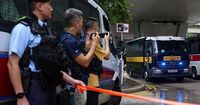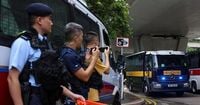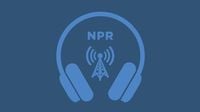On Monday, August 18, 2025, the eyes of the world turned once again to a Hong Kong courtroom as final arguments commenced in the landmark national security trial of Jimmy Lai, the 77-year-old British media tycoon and founder of the now-shuttered Apple Daily. After months of delays—due to both extreme weather and Lai’s deteriorating health—the proceedings resumed, marking what many see as a pivotal moment for press freedom and judicial independence in the city.
Lai, a prominent critic of Beijing, faces the possibility of life in prison if convicted of sedition and collusion with foreign powers under Hong Kong’s sweeping national security law. The law, imposed by Beijing in 2020 following the city’s tumultuous pro-democracy protests, has been widely criticized by rights groups and foreign governments for its broad reach and harsh penalties. Lai has pleaded not guilty to charges of conspiracy to collude with foreign forces and conspiracy to publish seditious material.
The trial, which began in December 2023, was originally slated to last 80 days but has now stretched to nearly 150 days—almost double the original estimate, according to BBC News. The closing arguments, initially scheduled for August 14, were twice postponed: first by severe weather, then by growing concerns over Lai’s health. On Friday, August 15, Lai’s lawyer, Robert Pang, told the court that Lai had suffered episodes of near-collapse and heart palpitations while in custody. The court responded by ordering that Lai be provided with a heart monitor and medication before the hearings could proceed. Prosecutor Anthony Chau confirmed that these measures were taken and that Lai was fit for court on Monday.
Lai’s appearance in the glass dock was a somber sight for many in attendance. Noticeably thinner than when the trial began, dressed in a white jacket, he pressed his palms together in prayer several times toward his family and supporters. Judge Esther Toh assured the court that additional breaks would be provided for Lai as needed—a small gesture in a process that has tested the limits of the 77-year-old’s endurance.
The prosecution’s arguments on Monday focused on the national security law’s provisions regarding collusion. Prosecutor Chau contended that the law required requests for sanctions to target officials and not just states, and he accused Lai of persistently appealing to foreign governments—especially the United States—to take action against Beijing. “It is surprising to see that D1 (Lai) raised freedoms of thought and association as his shield,” a prosecution document read in court, expressing bewilderment at Lai’s analogy between his actions and routine international legal cooperation. Chau planned to conclude his closing statement on Tuesday, August 19.
Prosecutors have long alleged that Lai used his media platform and personal connections to urge foreign countries to impose sanctions or other hostile actions against China, all “under the guise of fighting for freedom and democracy.” On the first day of his testimony, Lai denied ever asking then-Vice President Mike Pence or Secretary of State Mike Pompeo to take action against Hong Kong and China during the 2019 protests. However, when questioned about an Apple Daily report stating he had asked the U.S. government to sanction Beijing and Hong Kong leaders, Lai conceded he must have discussed it with Pompeo, saying he had no reason to doubt the accuracy of a report by the newspaper he founded. Still, Lai insisted he would not have encouraged foreign sanctions after the national security law came into force on June 30, 2020.
Lai’s prolonged detention has drawn international scrutiny and concern. He has spent almost four years behind bars, much of it in solitary confinement since 2021. Reporters Without Borders reported last week that Lai’s health had sharply declined during this period, noting he was allowed only 50 minutes of exercise a day and had scant exposure to natural light. The watchdog’s statement added to a chorus of criticism from rights groups and foreign governments, who argue that Lai’s treatment is emblematic of Hong Kong’s eroding civil liberties.
Lai’s family, too, has sounded the alarm. His son, Sebastien Lai, told Sky News last year that his father, who suffers from diabetes, had lost significant weight and was denied independent medical care. “I don’t want my father to die in jail,” Sebastien pleaded, urging the UK government to step up efforts to secure his father’s release. He described conditions in Lai’s cell as “baking,” with temperatures reaching 30-40°C, and said, “So we’re incredibly worried about him and all of this in the last four years was aimed to break him, to break his spirit.”
The Hong Kong government, for its part, has pushed back against claims of inadequate medical care. Following Friday’s hearing, officials alleged that foreign media outlets had misled the public about Lai’s condition, insisting that medical examinations found no abnormalities and that the care provided in custody was adequate.
The trial has become a lightning rod for broader debates about Hong Kong’s future. When the former British colony returned to Chinese rule in 1997, Beijing promised to preserve the city’s civil liberties for 50 years. Critics now argue that the national security law has rendered that promise hollow, while Chinese and Hong Kong authorities maintain the law was necessary to restore stability after the 2019 unrest.
Outside the West Kowloon court on Monday, dozens of supporters braved the rain to secure seats in the public gallery, eager to catch a glimpse of Lai. Among them was Susan Li, a former Apple Daily reader who told BBC News she was concerned about Lai’s health but determined to show her support. “I wanted to let him know we are still here,” she said, adding that she would continue to pray for him.
Lai’s case has also become a point of contention in international politics. U.S. President Donald Trump, before his second term began in November 2024, pledged he would “get him out” and said he would speak to Chinese leader Xi Jinping about Lai’s release. Yet in a Fox News radio interview released on August 14, 2025, Trump walked back his earlier remarks, clarifying, “I’ve already brought it up, and I’m going to do everything I can to save him.” China, meanwhile, has accused Lai of fomenting anti-China sentiment in Hong Kong and has firmly rejected what it sees as foreign interference in its internal affairs.
With closing arguments expected to last about eight days, it remains unclear when the court will deliver its verdict. For now, the fate of Jimmy Lai—and, some argue, the fate of Hong Kong’s remaining freedoms—hangs in the balance. The city and the world watch closely, waiting for a decision that could reverberate far beyond the courtroom walls.



